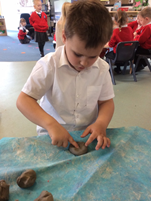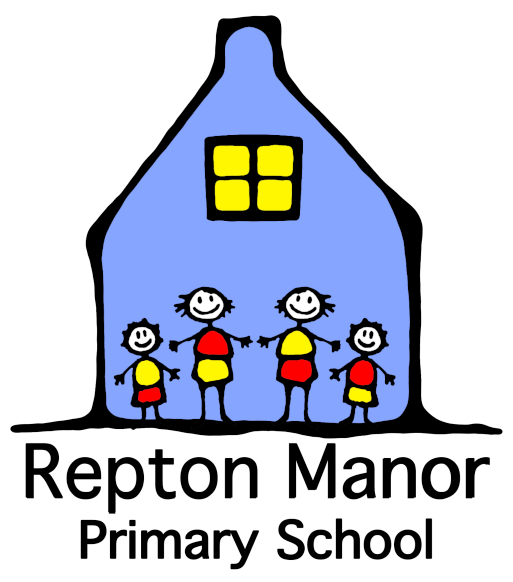Our Children
Our EYFS Curriculum
Planning and organising the curriculum
There are seven areas of learning and development that must provide a framework for planning, teaching and assessing in Early Years settings. All areas of learning and development are interconnected.
Our Early Years curriculum is planned into six topics using common interests of children; such as transport, celebrations and the seaside. When planning, the adults look at the skills and knowledge that need to be developed in order for children to make progress, the learning will be planned with the children’s specific interests and preferred learning styles in mind. Children’s learning will cover all seven areas of learning during teacher directed activities and provision that is planned and set up for the children.
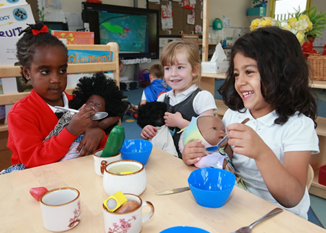
Children are working towards meeting the Early Learning Goals. These are goals that children are expected to achieve by the end of their Reception year. They will be working towards these goals throughout their first year at school and will be supported to develop these specific skills.
Statutory Framework for the Early Years Foundation Stage
As well as the Statutory Framework, we also use the Birth to Five Matters document which breaks down the stages of development into smaller, more achievable, steps. This enables children to develop towards meeting the Early Learning Goal in the Summer Term. We purposefully chose this document because it promotes a holistic approach to learning, putting how young children learn and develop at the heart of all teaching and learning decisions in our setting.
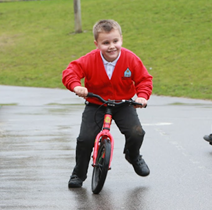
The Early Years Curriculum consists of three Prime and four Specific areas of learning.
The three Prime Areas are:
-
Communication and Language
Children will be given a range of opportunities to experience a rich language environment, to develop their ability to express themselves and to speak and listen in a range of situations. There has been a huge emphasis placed on this area of development, this is due to a decline in children’s language skills and the rise in children with language disorders. We will talk to parents often about their child’s speech and language development as we believe the ability to communicate opens such an exciting door to learning opportunities.
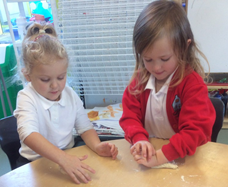
-
Physical Development
Children will be provided with lots of opportunities to be active; to develop their coordination, motor control and movement. Children will be able to explore the environment at Repton Manor, including the adventure trail, nature area and the large equipment in the school hall. We place a huge importance on children’s physical development as we are acutely aware of the developmental steps children need to move through before becoming writers. Children will be taught the importance of physical activity and to make healthy choices in relation to lifestyle.
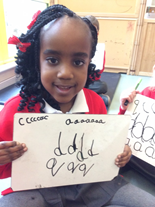
-
Personal, Social and Emotional Development
This is a vital area of development for children to develop a positive sense of themselves and others, forming positive relationships and developing social skills and learning how to manage their feelings. They will begin to understand appropriate behaviour in a range of different social situations and have confidence in their own abilities which enables them to make independent choices. This area of development is supported in all that we do at Repton Manor. Adults will always model positive relationships and behaviour, fostering a feeling of care and safety.
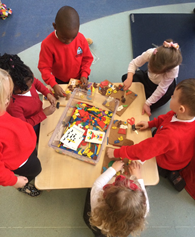
There are four Specific Areas, through which the three Prime Areas are strengthened and applied:
-
Literacy
Children will be taught to link sounds and letters and to begin to read and write. Children will be taught Phonics from the Read Write Inc scheme, this will enable them to make good progress with both their reading and writing skills. Children will be given access to a wide range of reading materials to ignite their interest and love of Literacy skills. We are a storytelling school, so we place a huge emphasis on children being taught well known stories, orally rehearsing and innovating to create their own stories.
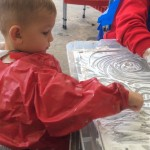
-
Mathematics
Children will be provided with opportunities to develop and improve their skills in counting, understanding and using numbers. They will deeply embed their understanding of numbers to 10, learning how to solve addition and subtraction problems. It is important to us that children understand the place of Mathematics within everyday life and apply their mathematical skills to solve problems and to tackle challenges.
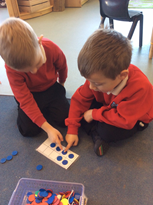
-
Understanding the World
Children will make sense of their physical world and their community through opportunities to explore, observe and find out about people and places now and in the past. Children will be able to take advantage of our richly diverse school community and will be able to explore what makes people unique and also what brings us together.
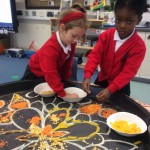
-
Expressive Arts and Design
Children will explore and play with a range of media and materials, as well as providing opportunities and encouragement for sharing their ideas and feelings through a variety of activities in Art, Music, movement, dance, role-play, and DT.
